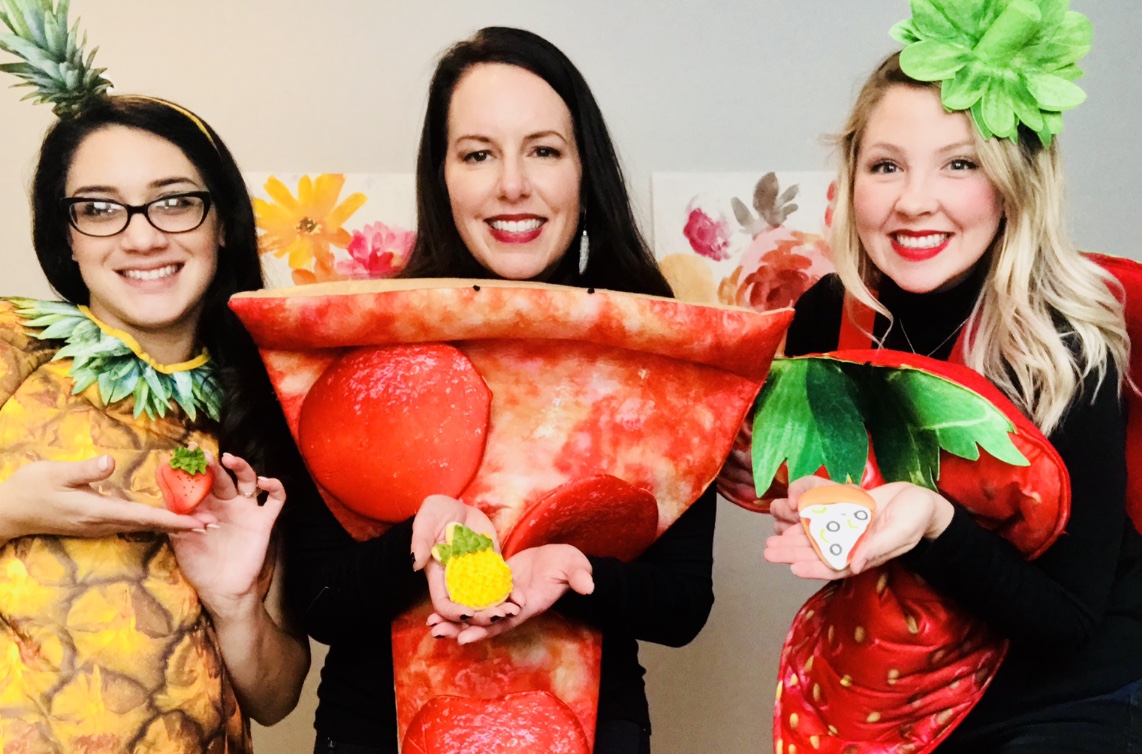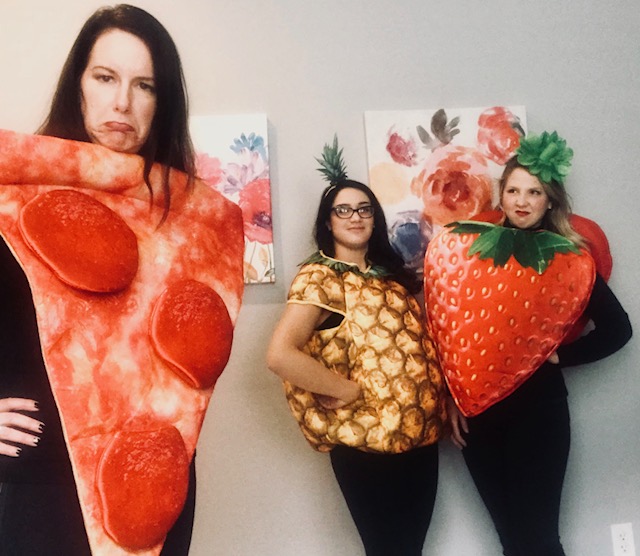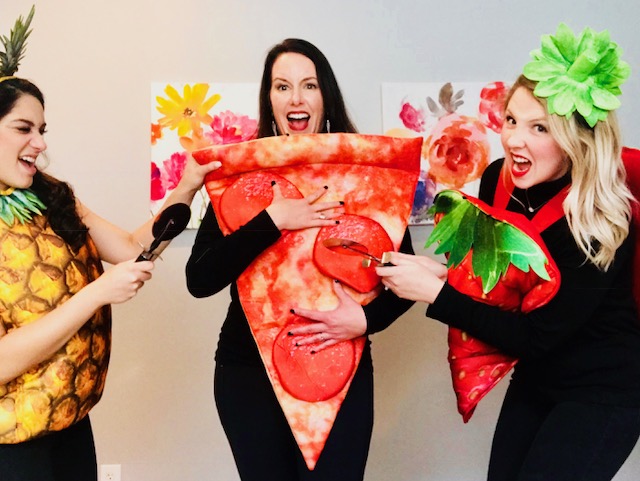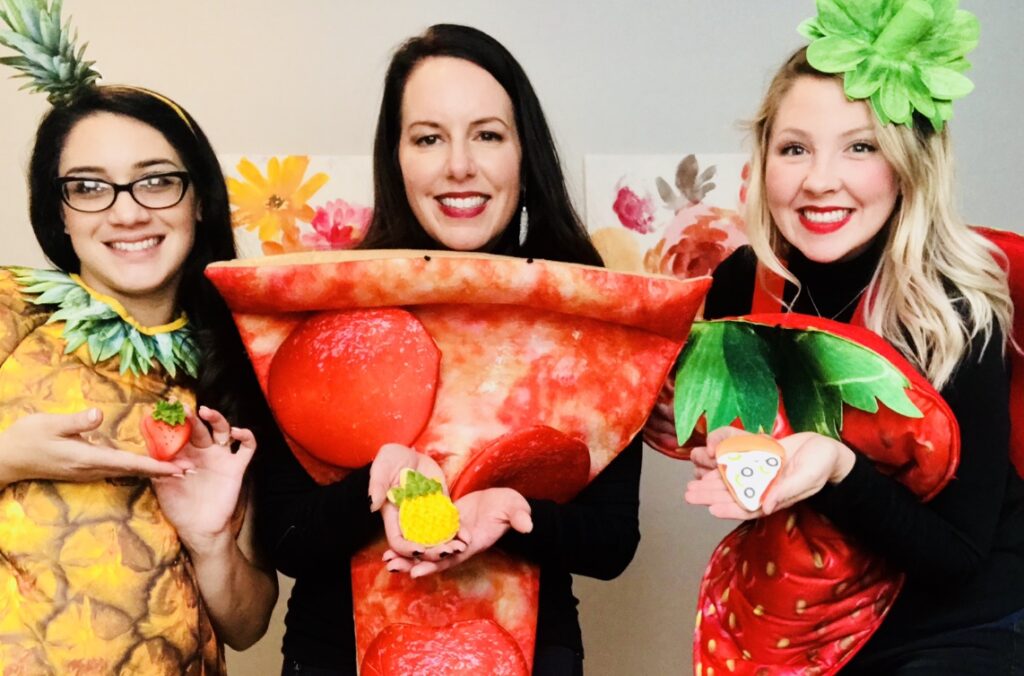My Son Ate A Cookie For Breakfast, Here’s Why The World Didn’t Explode
share to:

A look into food, balance, variety, and moderation
Another glorious Monday-running late, as usual. Zooming to get my son to school, on time. Hot-mess Mom in full effect. Cue to five minutes ago: we were sprinting out the door with him moving at the pace of an ambitious turtle, and me, worrying about nourishing him with a decent breakfast with negative-5 minutes to make it. He’s never been much of a morning eater, so anything I persuade him to eat is a win. Damn it, out of bread. I guess we won’t be having toast this morning. “Okay dude, peanut-butter cookie it is”, as I frantically search the kitchen for any reminisce of yogurt, waffles, or granola bars. “Yes!” he says in sleepy excitement. Well, at least I made his morning. Also making a mental note for a serious grocery trip…
As I’m dropping him off, a staff member says to him, “Wow, a cookie for breakfast? That’s healthy,” with the utmost sarcasm. My son looks at me puzzled; I tell him to have a great day and to get to class. This employee knows my profession, and the intense judgment sets in.
I continued my day curious about the thought process of foods in our society. Why did he feel the need to commentate on this? Would it have been better if I let my son go hungry until 12:30? Absolutely not! It wouldn’t have been my first choice of breakfast item, but was it really negatively different than the toast I was planning on? It had similar macronutrients such as carbohydrates, and even had some fat-which is a good thing since he doesn’t eat enough in the mornings anyway. The toast surely would not have gotten such harsh remarks towards my parenting.

This led me to think more about the stigma with food, why are we always at war with it? Why are we continuously vilifying or shaming it? How can we really embrace the concept of food, balance, variety and moderation?
The ol’-fashioned “good” & “bad” food label
If you were in the midst of starting a new diet, what label would you give pizza, tacos, & cake? Maybe something along the lines of “bad” or “unhealthy”? What about salad, vegetables, or grilled chicken? “Good”, “clean”, “healthy”-you get the idea. The general consensus on foods is that our societies natural train of thought wants to harshly categorize. Trying to incorporate nutritious foods is a great thing; it means we care about our well-being! But at what point does this morph into diet cycling of only “good” or “bad” foods?
What happens when we get burnt out on “healthy eating” and go back to our old habits? The black and white thinking leads to a constant battle: Us vs. Food. Since food continues to be essential for survival, at least the last time I checked- it may be time to end the war.

I was given a wonderful perspective from my preceptor, Jill Sechi MS, CEDRD, RD, LD: Do we use black and white thinking for our relationships? Do we expect our relationships with loved ones to be either absolutely perfect or completely miserable? No! We can expect that we will eventually get into an argument with our spouse or friend. There is no “all good” or “all bad” relationship, there is balance. This is similar to the moderate eating approach. Eating vegetables is fantastic. Eating a slice of pizza is also fantastic, and realistic life. There is something that can be used for energy in essentially everything we eat. There are no “bad” foods!
I know what you’re thinking, “But those are junk foods! I’ve been told they are BAD!” Well, no. Lets think about it for a moment, if our diet is strictly greasy items, sugar, and fried foods, it likely isn’t balanced. Remember- the goal is variety and normalization. If we are actively being mindful of our choices and enjoy an occasional pizza night, that does not mean we automatically have heart disease. It also does not mean we need to feel a sense of failure and shame within ourselves! Incorporating a variety of proteins, fats, and carbohydrates is all possible while eating foods we actually enjoy, without the restrict-binge-repeat cycles or self-shaming. Don’t get me wrong, I absolutely advocate for the incorporation of a diet high in lean proteins, veggies, fruits, dairy, and whole grains, it is extremely important! Often times we feel better when our diet is high in these, and we may crave them when they aren’t being forced by a diet! But, I also advocate for the birthday cake, the pizza night, the queso at the Mexican Restaurant, the popcorn at the movies, or a cookie for breakfast just because you feel like it!
Eating in moderation has the intention of providing a range of foods to better serve our bodies Macro & Micronutrient needs, while also bringing us happiness around our food/nutrition choices. It means that we strive to be in tune to our hunger cues, which leads me to my next topic: overeating.
“But if I’m including fun foods, I’m going to overeat them”
This is an understandable argument. A great tool is practicing & developing your hunger/fullness cues . But, be patient with yourself. This doesn’t happen overnight.
Often times when we steer clear of diet cycling, our bodies do a great job of communicating satiety. Many times, it is when we begin to indulge in yo-yo dieting that problems can arise.
Check out these 3 tips to improving your cues:
- Incorporate a normal eating schedule, such as meals & snacks at similar times. I know with busy schedules this is challenging, but we have to remember, eating is a basic act of self-care!
- Strive to be mindful while eating-what is your body telling you?
- Enjoy mealtime, be present in the moment!
To further help with mindful eating, consider asking yourself some of the following questions during meals or while eating:
- How hungry am I right now? Have I had a snack today? Have I missed a meal?
- Am I eating in response to my body’s needs? If not, am I eating because I am sad, anxious, or bored? If so, what else could I do to work through how I am feeling? (Think of activities like journaling, calling a friend, taking a walk, etc.)
- After eating a serving of food, how do I feel? Am I still hungry or is my body satisfied?
- Am I eating mindlessly? Examples could include eating in front of the television, standing while eating, eating while holding conversations, eating while working on the computer, all while not necessarily hungry.
- Am I planning ahead? Planning meals can exponentially help us maintain balance. Often times when we don’t plan out our food, the likelihood of stopping for fast food (that we might not even want) increases. If we know we want to eat Chick-Fil-A for lunch, plan for it, don’t make it an obligation because you have nothing else to eat!
- Am I eating balanced? Think of if you are incorporating vegetables, fruits, lean proteins, dairy, fats, grains, etc.
By simply checking in with yourself mentally, you can better understand what you need. Having positive dialog can change your mental outlook, such as saying, “hmm, I haven’t eaten many vegetables, lets do a mixed salad today, that sounds so good!” is just as important as “man, I really want to get ice cream tonight, I think we will do that after dinner”.
Moderation, variety, and balance all revolve around listening to your own body and knowing what is beneficial for you in that moment. Beneficial to both your physical and mental health, that is.
This leads to the question: what is yo-yo dieting doing for our mental and physical health?
Yo-Yo dieting & the never-ending Diet Trap. Is it bringing you happiness? Are you becoming healthier?
When folks ask me for the diet that will be the be-all, end-all, it is usually from those who are constantly jumping from one fad to another. This pattern is phrased as yo-yo dieting. I always want to ask them, did any of these diets bring you happiness? Has all the time you spent been worth it? Are you in better health now? Have you gotten the results you wanted? If so, did the results last once the diet was over? How many moments of life did it cause you to miss out on? But, like The Beatles, I whisper words of wisdom (to myself) and let it be.
SPOILER! If we change our thought process with food, there is a strong possibility you may never have to go on a diet again.
Science has shown us that constant diet cycling may have negative consequences to our mental health, such as an increased risk for life dissatisfaction, psychopathology, and binge eating (https://jamanetwork.com/journals/jamainternalmedicine/article-abstract/618918?redirect=true). Yo-yo dieting is also interestingly associated with dieters having a higher weight than those who do not diet, and a more difficult time in losing weight (http://www.healthyliving.gr/wp-content/uploads/2016/11/The-Effects-of-Repeated-Cycles-of-Weight-Loss-and-Regain-in-Rats.pdf, and https://www.ncbi.nlm.nih.gov/pubmed/21829159. This is related to consistent restricting and binge patterns, and its effect on metabolism. The most harmful pattern is not the food itself. It is the behavior and critical nature around the food, which is calling the shots. To describe an example of yo-yo dieting Vs. eating in moderation, I have created 2 examples below:
- Jessica is on day 7 of her diet. Her meals have been very small, and very strict of only “healthy” foods that align with her diet rules. She is not eating snacks and is often still hungry after meals. This pattern has made her irritable and she having serious cravings for “bad” foods. Tonight, her family is having pizza. Since pizza has been one of her main cravings, she indulges. She knows she isn’t “allowed” to have this on her diet, but she hasn’t eaten much food this week and gives in. She eats many servings of pizza and breadsticks. She doesn’t understand how she can be this hungry! Since she already “broke” her diet, she eats a large dessert and ice cream as well. She thinks. “might as well, right?” Afterwards she feels overly full and not well. Her thoughts after dinner are: “Well, I failed at this again”,“I’m never going to lose weight, I can’t even stick to the plan for a week”,“Might as well give up since I already broke the diet”. For the next week, she eats large meals of primarily fast food, becomes overly full, and grazes for most of the day. She feels sluggish. After a week of this eating pattern and gaining weight, her thoughts are: “I can’t keep eating like this”,“I don’t feel well”,“I need to start my diet again”. She returns to dieting, for sure to stick to it this time! (Cue narrator voice: She did not, in fact, stick to it)
- Abigail is NOT on a diet, she has been learning to use the moderation/balance approach: Her meals sometimes resemble this: Breakfast: Egg & Spinach omelet, sausage link, blueberry muffin. Snack: Grapes, a cheese stick, & crackers. Lunch: Caesar salad with grilled chicken, croutons, garlic bread. Snack: Refrigerated chocolate pudding or yogurt and almonds. Dinner: Pizza night with the kids! Pepperoni pizza and breadsticks, salad with ranch. She eats mindfully until full and feels satisfied, since eating an adequate amount of food throughout the day, she did not have ravenous hunger. She doesn’t have negative self-thoughts about eating pizza, she knows it provided carbohydrate, protein and fat, and it was just another normal meal. The next day, Abigail did not feel she violated any “rules” and continued eating what felt best to her.
What is the difference here? The mentality, and the food rules!
Abigail for example, included an adequate amount of food during the day. This led to balance and prevented the urge to overeat at the first sight of a fun-food, such as pizza. Keeping in mind that Abigail also included a balanced meal, full of proteins, fruits, veggies, dairy and grains.
Jessica however, had a pretty limited day. Trying extremely hard to stick to an exact plan and limiting food resulted in extreme hunger and cravings. Once Jessica indulged, it was a mindset of automatic failure. This led to defeat and returning to the unbalanced eating patterns she was originally unhappy with. Over the course of a year of dieting, Jessica actually ended up being heavier than she was originally. When she had “fallen off” her diet, the weight seemed to come back quickly. She still felt defeated, and thought about all of the life she has wasted obsessing about food, and all the moments she has missed.
Eating in moderation is not a short-term, quick-fix, with clear-cut rules, it is a way of thinking and a lifestyle that is real. It is understandable that the next top-selling diet always seems to be legitimate. But, if diets truly worked, why do we keep coming up with new ones? If a diet in any way tells you about foods to never eat again, or magic supplements to drink, chances are its not going to work in real life! A motto I personally go by is, “Does this make any logical sense?” If it sounds too good to be true, it usually is.
Changing our perspective towards foods is such a vital piece to initiating change. As humans, we are naturally drawn toward what is forbidden and what we can’t have.
Lets stop vilifying and shaming ourselves, our food, and others! If we take restrictions off the table, and ditch the labels, we can change our food-dynamic and better our life for the long-haul.

I guess my point is, lets enjoy the cookies when Mom is out of toast.
